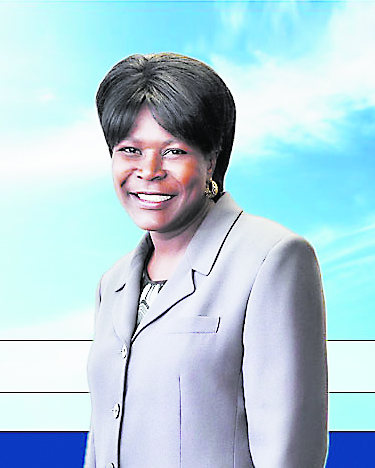Katherine Duncan: Mayoral candidate considered a fresh voice for the people
April 11, 2011 by Las Vegas Black Image Magazine
Filed under Feature, Politics
Today, Duncan is in a new role: political candidate. Calling herself “a fresh voice for the people,” she is the only African-American woman running for mayor of Las Vegas.
“It is the people who have been pushing me to run initially — (but) for Ward 5 city council (representative),” said Duncan. “For the last three years this is all I have heard — ‘Well, you need to take Ricki Barlow’s seat.’ Maybe this was such a big request because I assisted in starting the Ward 5 Chamber of Commerce, and the people of our community know me as the president for the chamber. I finally admitted that I was not going to run for city council, and after my son said, ‘Mom, why don’t you run for the mayor’s seat?’ I started to weigh my options — and I told him I would think about it. After seeing the first two names that declared their candidacy for mayor, I said, ‘Oh, no! Not again. Are these the only two choices we have?’ I received well-wishes from my immediate family, and I announced my run for mayor around Christmas time.”
An Arkansas native, Duncan arrived in Las Vegas in 1977 after being persuaded to move here by her sisters, Fay and Eva, who were already living and working in the Silver State.
With Nevada’s African-American unemployment at 21 percent, “How would you increase employment?” is the most frequent question Duncan hears on the campaign trail. “The fastest way we can create jobs is to give everyone in Las Vegas an incentive to fix up their homes,” she said. “If the … mayor would say, ‘Let’s spend the next six months fixing up our homes,’ we can put to work our local laborers, carpenters and building analysts to work, helping with buttoning up our energy costs. We will then see … needed employment.”
In recent times, local unions have come under fire for lacking equal participation by, and adequate outreach to, Las Vegas’ African-American populace. The result has been a steadily dwindling number of black laborers. “Our African-American participation in the unions is pitiful,” said Duncan. “Young people growing up in Las Vegas aren’t aware of how the unions operate, and there is no outreach from the unions to our inner cities. So I am challenging every trade union to set up a training center in our local high schools to prepare our students who want to go into the labor fields with the proper training to become members.”
Another issue facing African-Americans here is access to local institutions. For example, Las Vegas’ Fremont Street Experience recently denied the 10th annual Taste & Sounds of Soul Festival a permit to take place in the downtown area — after the city’s largest Black History Month Festival had been held there for nine consecutive years. The denial prompted some to question how far the city has come in terms of equal treatment. “When I am elected mayor, I will treat the Taste & Sounds of Soul Festival the same way the Helldorado Parade and events are treated by the city. I would economically support the event the same way the Helldorado Parade and events are supported by the city,” said Duncan. “Cities are most successful when they promote local activities that come out of the community.”
While the African-American struggle for equal rights in Nevada continues, some believe there is a parallel struggle for economic civil rights.
“Yes, segregation is alive and well in our city,” Duncan acknowledged. “We have to cut through this. Part of the salvation for the black community is to deal with the black neighborhood. The black neighborhood is suffering because it has not been integrated. We did a great job with desegregation, but we never integrated the Historic West Side businesses and our cultural community within the rest of Las Vegas. We need to look at how we can integrate the community both socially and economically. I believe if we start by celebrating our churches and treating them like other businesses, and give them incentives to fix up their buildings and parking lots, we will witness great enhancements at large.”
Early voting in the mayoral race will continue until the April 5 primary election. If none of the candidates receive an outright majority of the votes — at least 50 percent plus one — a runoff between the top two finishers will be held on the second Tuesday in June.






